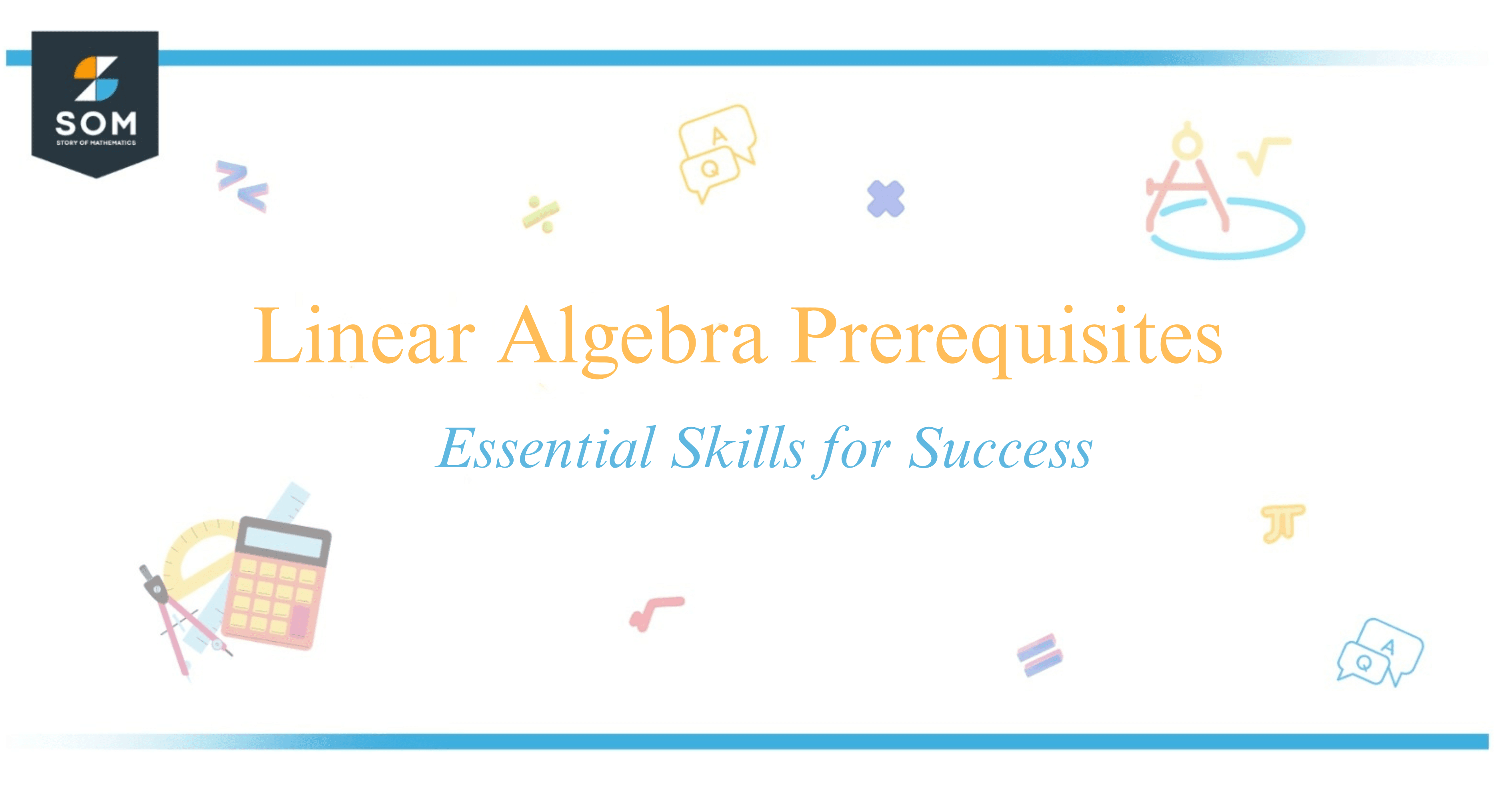
Linear algebra is a fundamental branch of mathematics that underpins many areas of sciences, engineering, economics, and computer science due to its powerful framework for dealing with vectors and matrices.
At its core, linear algebra deals with concepts such as vector spaces, linear transformations, and systems of linear equations, which are critical for understanding and solving a wide array of problems in both theoretical and applied contexts.
My journey into linear algebra began with a solid foundation in high school algebra, where comprehending functions, equations, and basic mathematical operations was crucial. To effectively step into the world of linear algebra, it was particularly beneficial to be comfortable with the concept of vectors, matrices, and three-dimensional coordinate systems, as these are the tools and notations frequently used in this field.
Foundations of Linear Algebra
When I first approached linear algebra, I found it essential to have a strong grasp of certain mathematical concepts. My journey began with an understanding of vector spaces, which are collections of vectors that can be added together and multiplied by scalars, satisfying specific rules.
This foundation requires familiarity with vectors and operations in three-dimensional coordinate systems.
My next step was to delve into the geometry of vector spaces, encompassing the concepts of span, bases, and dimension. These are vital for understanding projections and the Gram-Schmidt process, which is a method for orthogonalizing a set of vectors in an inner product space.
In terms of solving linear systems, I focused on mastering Gaussian elimination, which leads to the understanding of matrix algebra and the ability to find determinants and inverses of matrices. I discovered that matrices are fundamental not just for solving systems of linear equations but also for representing linear transformations.
To advance my knowledge, I studied eigenvalues and eigenvectors, which are crucial for applications in differential equations and diagonalization of matrices. Learning the essentials of complex eigenvalues was imperative for tackling topics like Markov chains and vibrations in physics.
Throughout my studies, I relied on esteemed textbooks such as “Linear Algebra Done Right” by Axler and “Linear Algebra” by Insel and Spence, which guided me through intricate topics with clear explanations.
Professor Gilbert Strang’s lectures at MIT were also invaluable for their practical and insightful approach to both theory and applications.
Here’s a breakdown of the topics foundational to linear algebra:
Vector Spaces:
- Vectors, dimension, bases, subspaces
- Linear independence vs. linear dependence
Matrix Theory:
- Matrices, determinants, inverses, rank
- Systems of linear equations
Transforms and Decompositions:
- Linear transformations
- Eigenvalues and eigenvectors
- Diagonalization and the singular value decomposition
Glossary of Concepts:
Term Description Vector Space A set where vectors are added and scaled. Span The set of all vectors that can be made from a set of vectors. Basis Vectors that span a vector space with no redundancy. Gaussian Elimination A process to solve systems of linear equations. Eigenvalues/Eigenvectors Scalars and vectors indicate stability and direction in transformations.
Applications of these foundations span across various fields, from geometry to engineering, and from natural sciences to economics. My academic integrity compelled me to tackle lots of homework problems, which fortified my understanding. Theoretical concepts like set theory and the art of writing proofs proved to be just as significant as practical applications in my studies.
Overall, the knowledge and skills gained from these foundational topics in linear algebra have been indispensable for my work in college-level mathematics and beyond.
Conclusion
In preparation for a course in linear algebra, I’ve found that the focus should be on understanding key algebraic concepts rather than having a background in calculus. Although institutions like MIT list calculus as a formal prerequisite, the essential skills for success in linear algebra lie in the mastery of vectors, matrices, and three-dimensional coordinate systems.
My research reaffirms that proficiency with functions and high school algebra forms a solid foundation for linear algebra. This aligns with the Linear Algebra Curriculum Study Group’s recommendations to introduce the subject earlier in the academic journey, highlighting the importance of context and applications in teaching.
Regarding study resources, Gilbert Strang’s Linear Algebra and Its Applications is not only accessible but also highly regarded for its clarity. It’s the book used in conjunction with MIT’s acclaimed linear algebra course videos, which speaks to its effectiveness as a learning tool.
Embarking on this enlightening mathematical journey requires a curious mind, a grasp of fundamental algebra, and enthusiasm for engaging with abstract concepts. I hope that anyone keen to explore the realm of linear algebra will find these insights useful and encouraging.
